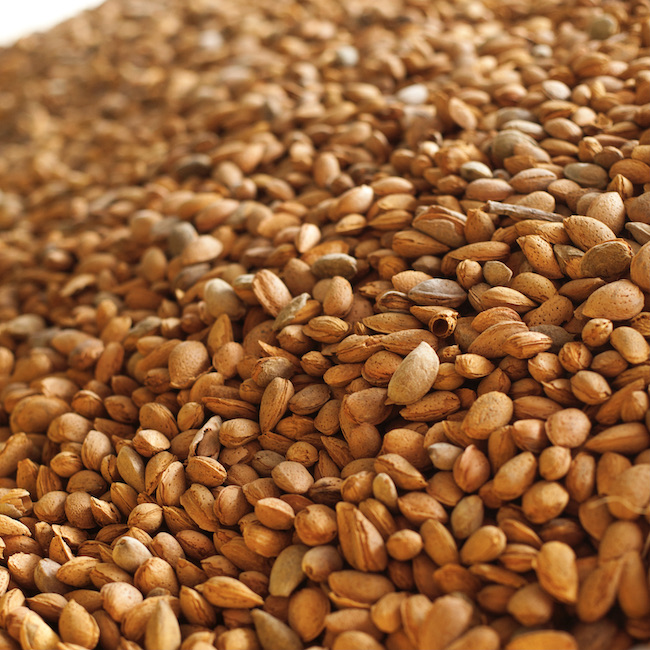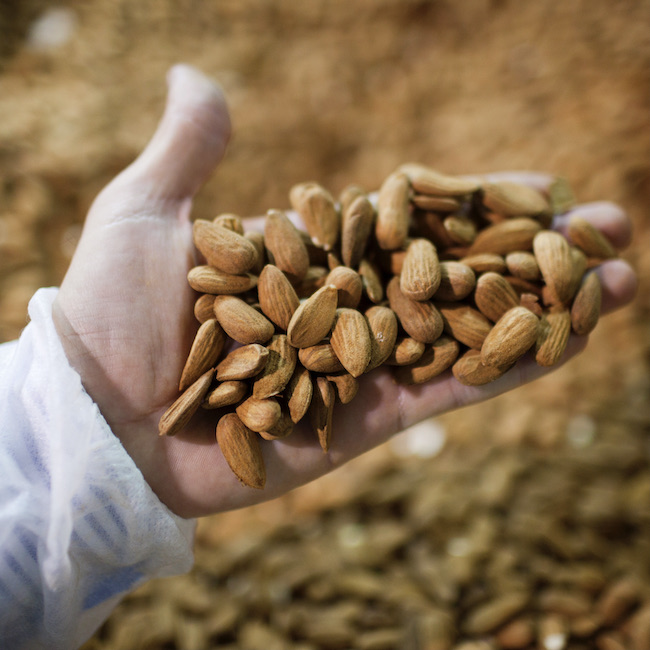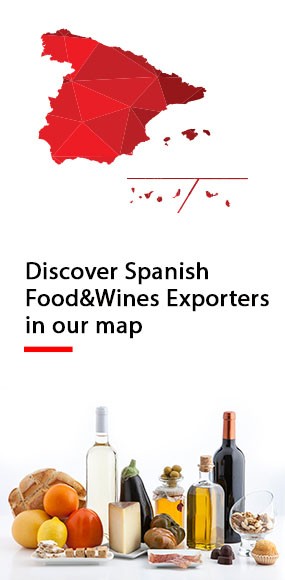.png.transform/rendition-xs/image_image%20(1).png)
Spanish Almonds, a Crispy Benchmark of Quality
Product quality, together with extensive experience and quality seals like Marcona position Spain as one of the world's top producers.
Certain foods are an essential part of the Mediterranean diet: olive oil, vegetables, dried fruits and nuts... Among the latter, almonds take pride of place. The almond's nutritional profile is ideal for this diet as it contributes to the prevention of cardiovascular diseases, as has been confirmed by prestigious studies such as PREDIMED. Additionally, from a nutritional standpoint, almonds contain a large amount of healthy fats, vegetable proteins and fiber. They also contain oligoelements, minerals and vitamins, in particular magnesium, calcium, potassium, iron, vitamin E and vitamin B6, as well as riboflavin, thiamine, niacin and folates. Undoubtedly, a mix that makes it an essential food.
Spain is the world's second largest exporter of almonds, accounting for 10% of the global total, which means that every year more than 100,000 tons of almonds are shipped, mostly to European Union countries, which accounts for 85% of the export total. Spain has a wide range of varieties, with cultivation depending on whether the crop is irrigated or rainfed. According to a recent study published by the Ministry of Agriculture, Fisheries and Food, "Guara is the most widely planted variety, regardless of the cultivation model." In dryland farming, after Guara, the most planted varieties are Comuna and Largueta. These, together with Marcona, account for 61% of the total. In irrigated areas, the following varieties are the most planted: Lauranne, Vairo, Comuna and Marinada, accounting for 59%," explains Minda Tabuyo, from Spanish Almond Board (SAB)-Almendrave. "In the new rainfed farms, Guara continues to be the variety with the greatest presence," explains Spanish Almond Board (SAB)-Almendrave, the Spanish Almond and Hazelnut Exporters' Association, which represents 68% of Spain's almond and hazelnut export activity.

"One of the competitive advantages of Spanish almonds with respect to foreign ones is that our climate allows much of production to be certified as organic, with the subsequent impact on profitability and its adaptation to growing demand for these types of products in the market," say sources in Almendrave. Moreover, there are quality seals like Almendra de Mallorca PGI, whose geographical area extends throughout the entire island.
"Raw, fried or roasted, almonds are the snack par excellence. SAB-Almendrave members have the most modern and specialized machinery to select and process almonds and to obtain all of its formats (kernels, blanched, slices, sticks, diced, roasted, flour) and other almond-based products (pastes, creams, ice creams and milk)." Almonds are also used to produce products that are also recognized with quality seals, such as Marzipan from Toledo, Turrón de Agramunt, Turrón de Alicante, and Jijona PGI.
A product in full development due to dietary changes
The growing popularity of nuts as a healthy snack and the increase in consumption are promising for the Spanish sector. Ricard Cisteré, commercial director at Borges BAIN, a leader in the almond sector founded in 1896 and present in more than 125 countries, explains that "Spanish almonds are highly valued in those countries with a Mediterranean influence, such as Italy, France, Greece, Turkey, as well as North Africa... and also in others such as Germany, where consumers are very familiar with certain almond-based products such as marzipan." He also points out that there are markets, such as Japan and the US, where there is a demand for Spanish Marcona almonds.

One of the reasons behind the increase in almond demand has to do with new eating habits. "There is a search for healthy products and non-animal protein sources, and almonds are positioned extremely well. There is also a boom in new products such as almond-based flours, vegetable drinks, and almond butter," says Cisteré. Spain's position has also been strengthened by new forms of almond farming. "If traditional agricultural harvests allowed us to obtain between 40 and 50,000 tons of almond kernels each year, new techniques allow us to increase that to 120,000 tons, and that figure could increase to 180,000 tons."
María José Llopis, from Almendras Llopis, a Spanish family-run business that has been working with almonds for almost a century, agrees with the growing importance of Spanish almonds in line with new habits. "In the last five years, we've seen how the perception of almonds as a healthy product has only grown stronger. Not only is it enjoyed as a snack, but it's also included in cereal and nut mixes and in products such as almond milk, which is essential for consumers looking for vegetable-based alternatives to follow a diet free of ingredients of animal origin." Llopis also highlights the emergence of new opportunities for Spanish exporters in places such as Japan and Singapore.
Llopis agrees with the perception that "The Spanish industry has many years of tradition, which requires an exhaustive knowledge of the product." He also believes that Spain has been able to "convey this experience and the quality of service." In addition to sustainability, he considers traceability to be one of the sector's greatest challenges for the coming years: "It's a very nice challenge, one in which a consumer in Germany, Italy or Japan can take a bag of Spanish almonds and identify the variety and the geographical area from which it came."
Author: Javier Sánchez/ @ICEX

